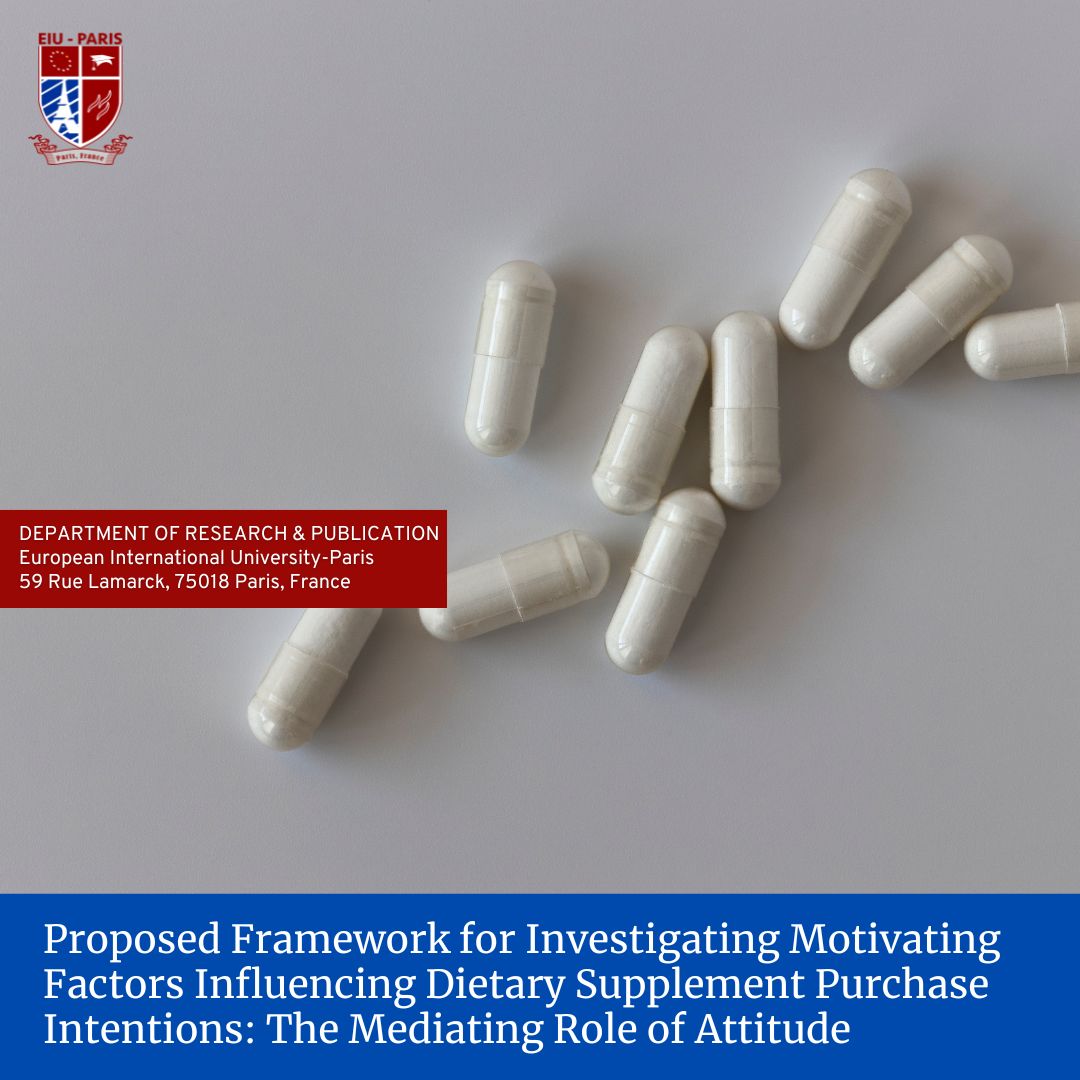- Version
- Download 10
- File Size 477.83 KB
- File Count 1
- Create Date February 14, 2025
- Last Updated February 14, 2025
Proposed Framework for Investigating Motivating Factors Influencing Dietary Supplement Purchase Intentions: The Mediating Role of Attitude
The global dietary supplements market is expanding rapidly, driven by consumer interest in health and wellness. Despite this growth, little empirical research has been conducted on consumer purchase behavior within the Malaysian context. This study integrates Self-Determination Theory (SDT), Theory of Planned Behavior (TPB), and Protection Motivation Theory (PMT) to explore intrinsic and extrinsic motivational factors, health motivation, and the mediating effect of attitude on dietary supplement purchase intentions. The study contributes to understanding how these factors interrelate, filling a critical gap in consumer behavior and dietary supplement marketing literature.
Introduction. The dietary supplement market has shown remarkable growth, with Malaysia emerging as a significant player. However, the country still lags behind others in dietary supplement consumption. With increasing public awareness of health issues, it is crucial to understand the motivators behind consumer behavior in this industry. This study examines the determinants influencing dietary supplement purchase intentions, offering insights for marketers and public health campaigns. While prior research has extensively explored socio-demographics and frequency of dietary supplement use, less attention has been paid to motivational constructs. This study focuses on the integration of SDT, TPB, and PMT to provide a holistic understanding of intrinsic and extrinsic motivations, health motivations, and attitudes toward dietary supplements. It also investigates the mediating effect of attitude on purchase intention. The conceptual framework integrates motivational theories, highlighting how intrinsic and extrinsic motivations and health-related behaviors influence attitudes and purchase intentions. The framework hypothesizes that attitude mediates the relationship between motivational factors and purchase intention. This study adopts a theory-driven conceptual modeling methodology, leveraging systematic literature review, theoretical synthesis, and analytical validation.

Thoh Ging Seng European International University – Paris (EIU-PARIS) DOI: https://dx.doi.org/10.47772/IJRISS.2025.9010193 Received: 12 January 2025; Accepted: 16 January 2025; Published: 11 February 2025

